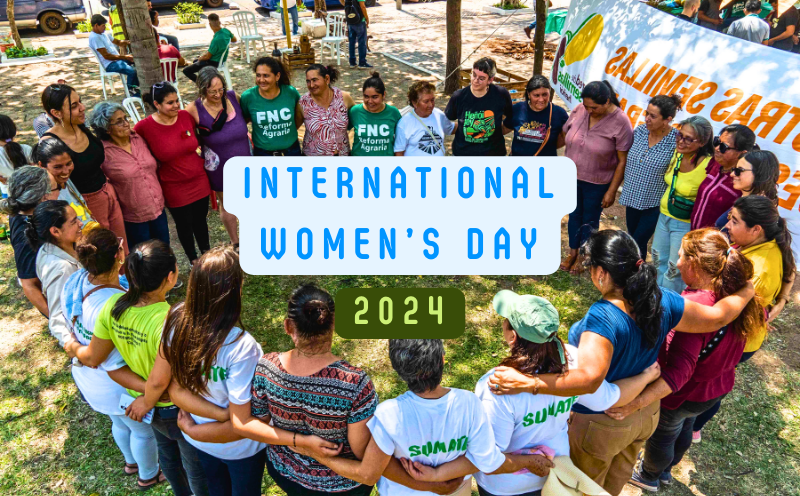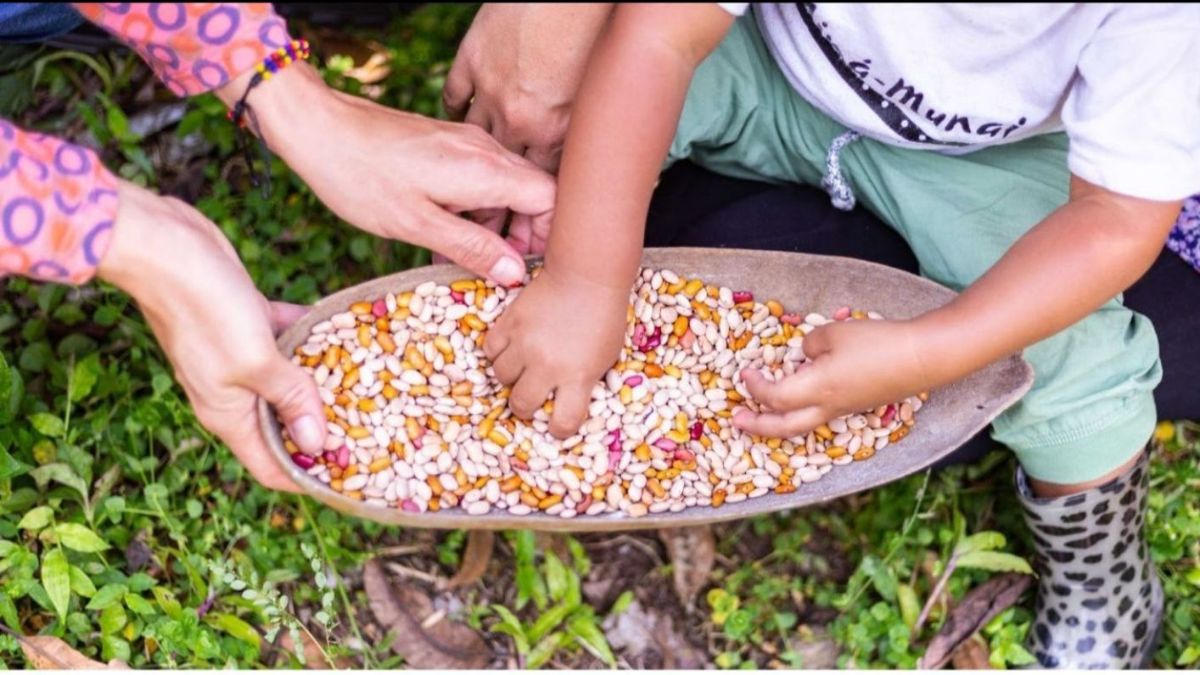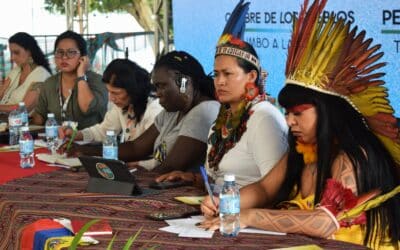Photo: Heñói Center for Studies and Promotion of Democracy, Human Rights and Socio-environmental Sustainability, Paraguay.
By Chithira Vijayakumar
We live in a time where the agrifood system, driven by capitalism, colonialism and patriarchy, are actively failing both people and the planet. Therefore, it stands to reason that the solutions lie firmly in the hands of agro-ecological feminist movements led by Indigenous Peoples, as well as local communities and small peasants who are working towards food sovereignty.
Patriarchy, with its emphasis on hierarchical power dynamics and gender roles, deepens inequalities within the agrifood system. Women in all their diversities, who play significant roles in food production, caring for and the preservation of seeds, and agricultural labour, face oppression, discrimination and marginalisation, with limited access to land, resources, and decision-making power. Women produce between 60 and 80 percent of the food in most developing countries and are responsible for half of the world’s food production, but they are consistently paid less than their male counterparts. The share of women agricultural landholders globally is less than 15 per cent. In addition, patriarchal norms perpetuate a narrow definition of agriculture, privileging large-scale, industrialised production methods over diverse practices traditionally used by Indigenous Peoples as well as local communities who protect more than 80 percent of forests and biodiversity worldwide.
This crisis is compounded by capitalism’s single-minded pursuit of profit and unlimited growth, which has enabled the corporate capture of international policy spaces, prioritised efficiency over true sustainability, and created a handful of agribusiness giants, many of them related to industrial livestock. A 2013 Oxfam study found that just ten companies control nearly every aspect of the global food supply chain, from seeds and pesticides to processing and distribution, commodity trading, processing, and retail. The ETC Group has highlighted the concentration of power and control over seeds in the hands of less than ten agrochemical corporations. This level of corporate consolidation can have significant implications for small-scale farmers, food prices, food security, forests, biodiversity, and land rights of IPs as well as local communities worldwide.
The consequences of this system’s shortcomings are stark. According to the Food and Agriculture Organization (FAO), agriculture, including both crop cultivation and unsustainable livestock production, is the leading cause of deforestation, responsible for around 80% of deforestation worldwide. It also contributes to soil degradation, water scarcity, air pollution, biodiversity loss, and the weakening of human rights, particularly of communities at the intersection of multiple marginalisation, all of which contribute to a global crisis. According to reports from the Food and Agriculture Organization (FAO) and the United Nations (UN), about one-third of all food produced is wasted, while at least 828 million people – or 10 percent of the world’s population – go to bed hungry each night, two-thirds of whom are women.
So, this International Women’s Day, the Global Forest Coalition (GFC) brings you three photo essays that exemplify feminist strength and innovation led by women in all their diversities, who are standing up against large-scale commercial agrifood corporations and their devastating impacts on the world’s marginalised communities, forests, and biodiversity.
Through our series of photo essays titled “Guardians of Earth’s Tomorrow,” we bring you stories of three visionary organisations actively shaping utopias today. Each essay tells the story of a community that is forging alternative pathways towards food sovereignty, environmental stewardship, and gender justice.
All three movements are based on circular agricultural practices that work towards food sovereignty and reclaiming public spaces and rights, unlike the current ‘produce-consume-discard with no limits’ model that industrial agriculture uses. These essays showcase the diverse ways in which Indigenous Peoples as well as local communities are working to heal the planet and build resilient, equitable food systems. They remind us that even in the face of daunting challenges, there are tangible actions we can take to create positive change.
On this International Women’s Day, let us celebrate and amplify the feminist visions and voices of those who are leading the way towards a brighter, more just future for all.
The Seed Fairs of Heñói
Heñói, Paraguay
In the heart of Asunción, Paraguay, two extraordinary fairs took place in 2023 against the backdrop of a fight for food sovereignty: the ‘Heñói Jey Native and Creole Seed Fair’ and the ‘Karú Soberano Fair’, which means ‘Sovereign Eating’ in the Guaraní language. They were organised under the guidance and leadership of the Heñói Seed Network. At these fairs, seeds emerge not just as agricultural treasures but as custodians of a profound legacy.
To view and download the photo essay, click here.
Available in EN and ES.
The TreeBox Project
Armenian Forests NGO, Armenia
The TreeBox Project is a unique initiative by Armenian Forests NGO that combines sustainable agriculture, environmental protection, and gender justice. It allows people to plant a forest in Armenia simply by ordering a box of healthy vegan food. Most importantly, this project centers gender justice, and is run by an all-women team of eight staff members and 25 farmers. Every element that goes into a TreeBox is procured directly from women farmers and entrepreneurs.
To view and download the photo essay, click here.
Available in EN and RUS.
Agromandala
Agromandala, Colombia
Agromandala is a Colombian agroecological project that grows, harvests, and markets fresh and processed foods 100% free of pesticides and cared for with all respect and love. At the core of Agromandala’s ethos lies the Community Supported Agriculture (CSA) model, a groundbreaking initiative born in August 2020 as a response to the COVID-19 pandemic. This innovative approach ensures a direct link between local organic farms and families invested in the well-being of their food sources. With over 150 varieties of edible plants, the project currently feeds around 80 families a week, of which 40 are members of the CSA.
To view and download the photo essay, click here.
Available in EN and ES.







